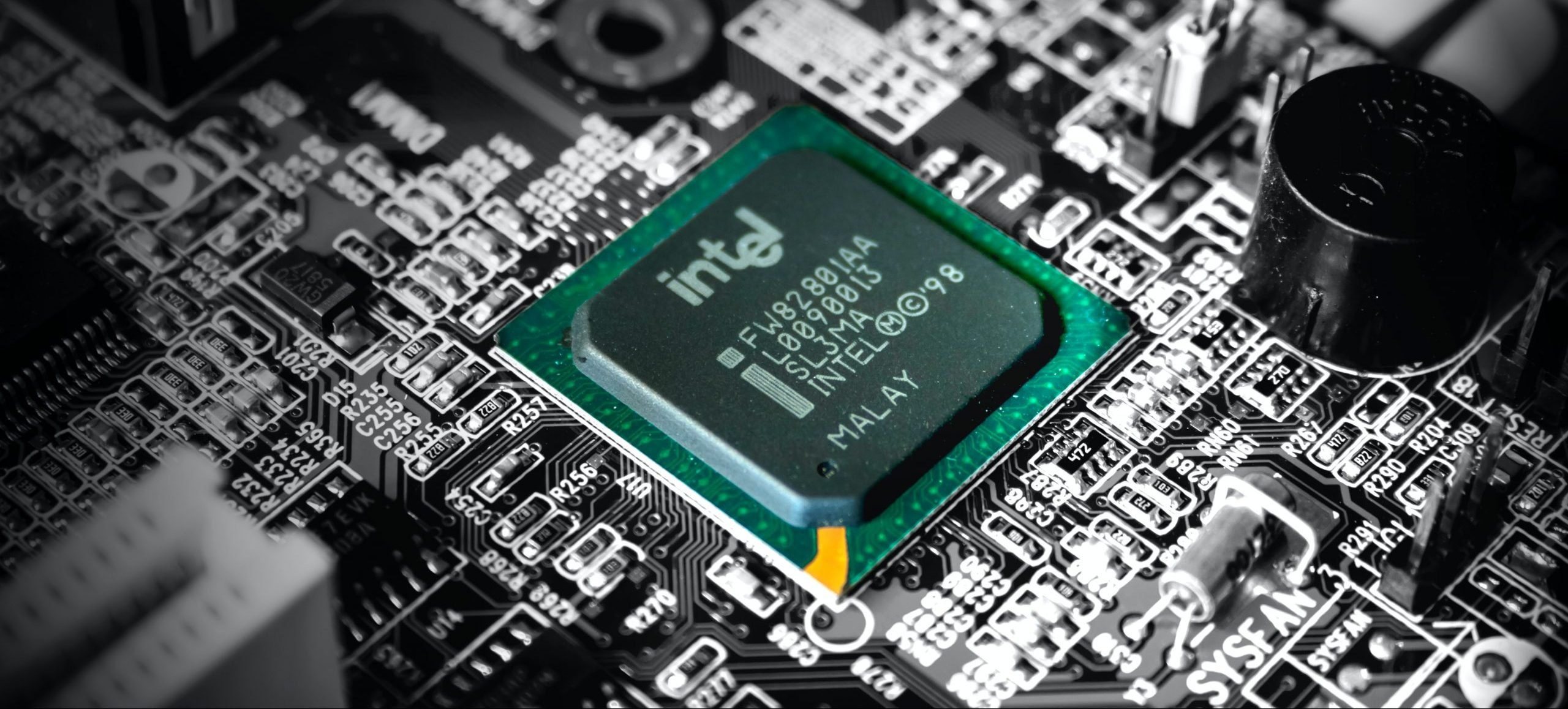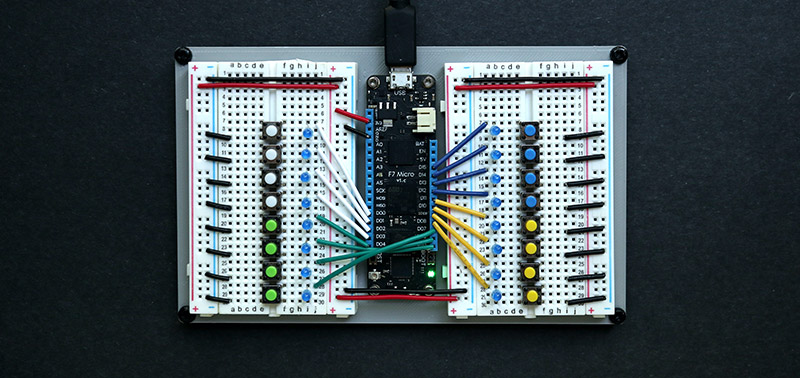
Major of
Communications & Electronics
New Cairo
Discover Communications & Electronics Major
- About Major
- Program Objectives
- What will I learn?
- Career path
- Mission

About Major
The Communications & Electronics major at CIC provides a various number of courses in different Communications & Electronics disciplines, that teach students to highlight and solve problems, and improve the built environment, consequently, preparing them for the professional field.

Program Objectives
- Preparing graduates who are able to identify, formulate and solve complex engineering problems through applying basic sciences and mathematics, developing and conducting appropriate experiments, analyzing and interpreting data, evaluating results, and using statistical and engineering analyzes to draw conclusions.
- Preparing graduates with the ability to practice scientific research techniques and methods of investigation as an integral part of learning through the application of engineering design processes to reach cost-effective solutions that meet specific needs while taking into account ethical aspects in a manner commensurate with design and sustainable development contexts.
- Preparing graduates with the ability to plan, supervise and follow up the implementation of engineering projects, taking into account the requirements of other disciplines, the use of contemporary technologies, quality guidelines, health and safety requirements, environmental issues and risk management principles.
- Preparing qualified graduates equipped with effective communication skills with the requirements of the labor market using contemporary tools by working efficiently as an individual and within a multidisciplinary group with a team spirit.
- Preparing graduates capable of using creative, innovative and flexible thinking and acquiring a spirit of initiative and leadership with the acquisition and application of new knowledge and the practice of self-education.
- Preparing graduates with the ability to model and analyze electric power systems by applying the concepts of generation, transmission and distribution of electric power systems
- Preparing graduates with the ability to design, model, analyze and integrate electrical, electronic and digital systems for various applications and identify the tools necessary to improve this design.
- Preparing graduates with the ability to design and implement electrical components and various systems using technological and professional tools
- Preparing graduates who are able to evaluate and measure the performance of electrical, electronic and digital systems under the influence of various inputs, and assess their suitability for different applications.
- Preparing graduates who are able to adopt appropriate local and international standards and rules for the design, construction, operation, examination and maintenance of electrical, electronic and digital equipment and systems.
- Preparing competent graduates equipped with the skills of knowledge of the latest technologies to identify the various components and systems, modeling, designing and troubleshooting electronic systems as well as applied communication systems and wireless and optical communication systems.
- Preparing graduates with the ability to analyze and process signals and apply new techniques and methods to design and implement digital and non-digital communication applications and encoding and decoding systems by linking the principles of electromagnetic science, wave propagation, circuit applications and microwave systems for use in evaluating information to implement individual and collective projects of electronic circuits.

What will I learn?
While you pursue the Electronics and Communications degree provided by CIC. you will cover the material required to learn about different sub-disciplines. Such as electronic hardware design, software programming, Communications branches, networks, antennas and microwaves, Electronic branches, Computer programming, Microprocessing, and microcontroller applications, and automatic control. In your final year, you'll be able to specialize in either communications or Electronics fields with advanced modules.

Career Path
The electronics and communication engineering branch is a very fast-developing branch of engineering that opens up a wide range of opportunities for professionals who might work for commercial, industrial, military, or scientific companies. Some examples of potential job titles are Telecom Engineer, Electronic Design Engineer, and Network engineer.

Mission
“The Communications and Electronics Engineering Program is committed to preparing distinguished graduates equipped with the foundations of basic and applied sciences and scientific skills according to the national academic reference standards through advanced education in the field of specialization and conducting scientific research that enables it to complete and lead in the labor market and solve engineering problems in order to reach an effective role in community services”
Major of Communications & Electronics
Study Plan
A program plan, or study plan, is an outline of courses to be studied in consequential semesters as part of a program. If you are a new student, kindly, join your academic advisor for advice on planning your program.
FIRST YEAR
| 1st | BAS 011 | Mathematics1 |
| 1st | BAS 021 | Physics1 |
| 1st | BAS 041 | Engineering Chemistry |
| 1st | BAS 032 | Mechanics 1 |
| 1st | MED 011 | Engineering Drawing & Projection |
| 1st | HUM A1 | General Requirements (Elective A) ( Communication in Education I ) |
| 1st | HUM 081 | Computer Skills |
| 2nd | BAS 012 | Mathematics 2 |
| 2nd | BAS 022 | Physics 2 |
| 2nd | MED 021 | History of Engineering & Technology |
| 2nd | BAS 033 | Mechanics 2 |
| 2nd | HUM A2 | General Requirements (Elective A) ( Communication in Education II ) |
| 2nd | HUM 011 | Arabic Language |
| 2nd | MED 022 | Principles of Manufacturing Engineering |
SECOND YEAR
| 3rd | BAS 111 | Mathematics 3 |
| 3rd | IEN 131 | Monitoring & Quality Control System |
| 3rd | ELP 115 | Electrical Materials |
| 3rd | ELP 112 | Electrical Circuits 1 |
| 3rd | ELP 114 | Electrical Measurements & Testing |
| 3rd | ELP 141 | Electromagnetic Fields I |
| 3rd | HUM 012 | English Language 1 |
| 4th | ELP 113 | Electrical Circuits 2 |
| 4th | BAS 211 | Mathematics 4 |
| 4th | HUM 111 | Technical Report Writing |
| 4th | ELP 181 | Energy Conversion |
| 4th | ELC 251 | Modeling & Simulation of Engineering System |
| 4th | ELP 142 | Electromagnetic Field II |
| 4th | HUM 013 | English Language 2 |
Third YEAR
| 5th | ELE 222 | Electronic Devices |
| 5th | ELE 221 | Digital & Logic Circuits |
| 5th | ELC 221 | Computer Programming |
| 5th | ELE 271 | Signal Analysis |
| 5th | ELP 241 | Electrical Machines & Transformer |
| 5th | BAS 311 | Mathematics 5 |
| 6th | HUM 181 | Communication & Presentation Skills |
| 6th | ELC 361 | Automatic Control |
| 6th | ELE 361 | Electrical Communications |
| 6th | HUM A3 | General Requirements (Elective A) |
| 6th | ELE 241 | Microprocessors & Applications |
| 6th | ELE 321 | Electronic Circuits |
| 6th | INST A1 | Institute Requirements Elective A |
Forth YEAR
| 7th | ELE 471 | Digital Signal Processing |
| 7th | ELE 322 | Electronics Engineering |
| 7th | ELP 361 | Power Electronics |
| 7th | ELE 463 | Mobile Communication |
| 7th | BAS 212 | Statistics & Probability Theory |
| 7th | 291 | Field Training 1 |
| 7th | HUM 182 | Analysis & Research Skills |
| 8th | HUM B1 | General Requirements (Elective B) |
| 8th | ELE 461 | Antenna & Wave Propagation |
| 8th | ELP 321 | Electrical Power |
| 8th | HUM 351 | Professional Ethics |
| 8th | ELE 411 | Integrated Circuits Design |
| 8th | ELE 462 | Digital Communication System |
| 8th | IEN 351 | Engineering Economics |
Fifth YEAR
| 9th | ELE 491 | Project 1 |
| 9th | HUM A4 | General Requirements (Elective A) |
| 9th | INST A2 | Institute Requirements Elective A |
| 9th | HUM 381 | Principles of Negotiation |
| 9th | IEN 314 | Project Management |
| 9th | INST A3 | Institute Requirements Elective A |
| 9th | ELE A1 | Minor Requirements ( Elective A ) |
| 10th | ELE 492 | Project 2 |
| 10th | 391 | Field Training 2 |
| 10th | ELC 331 | Computer Networks |
| 10th | ELE A2 | Minor Requirements ( Elective A ) |
| 10th | ELC 311 | Computer Organization & Architecture |
| 10th | CIW 331 | Environmental Impact of Projects |
| 10th | ELE A3 | Minor Requirements ( Elective A ) |
| 10th | HUM 352 | Human Rights |
PROGRAM SPECIFICATIOR
| Institute Requirements ( Elective A ) (Select 6 Credit Hrs) | |
| CIS 111 | Principles of Construction & Building Engineering |
| ARC 111 | Arts & Architecture |
| ELP 111 | Principles of Electrical Engineering |
| ELE 121 | Principles of Electronic Engineering |
| MED 111 | Principles of Design & Manufacturing Engineering |
| MEP 111 | Principles of Mechanical Power Engineering |
| ARC 110 | Principles of Architectural Design |
| ELE 477 | Principles of Coding Theory |
| ELE 472 | Principles of Optoelectronics |
| Minor Requirements ( Elective A ) (Select 9 Credit Hrs) | |
| ELE 413 | Embedded systems |
| ELE 421 | Optoelectronics |
| ELE 422 | Medical electronics |
| ELE 423 | Automotive electronics |
| ELE 431 | VLSI technology |
| ELE 442 | Microcontrollers & applications |
| ELE 453 | Microwave engineering |
| ELE 454 | Radar systems |
| ELE 455 | Acoustics |
| ELE 464 | Information & coding theory |
| ELE 465 | optical communications |
| ELE 466 | Telephony systems |
| ELE 467 | Satellite communications |
| ELE 432 | Information security |
| General Requirements ( Elective A ) (Select 8 Credit Hrs) | |
| HUM X62 | Music Appreciation |
| HUM X71 | Introduction to History of Civilization |
| HUM X72 | Trends in Contemporary Arts |
| HUM X73 | Recent Egypt’s History |
| HUM X74 | Heritage of Egyptian Literature |
| HUM X75 | Arab & Islamic Civilization |
| HUM X76 | Literary Appreciation |
| HUM X51 | Communication in Education I |
| HUM X52 | Communication in Education II |
| General Requirements ( Elective B ) (Select 2 Credit Hrs) | |
| HUM 121 | Introduction to Accounting |
| HUM 221 | Business Administration |
Our Staff

Dr. Ahmed Shaker Hassan
Head of Communication Department at Engineering School
• Ph.D. in Communications Engineering, Helwan University, 2013.
• Master’s in Electronics and Communications Engineering, Helwan University, 2006.
• B.Sc. of Electronics and Communications Engineering, Helwan University, 1999.

Dr. Mahmoud Hanafy
Assistant professor at Engineering School
• PhD in Engineering, Automated Control, Helwan University, 2008
• Master’s in Power and Electrical machines Engineering, Helwan University, 1992
• B.Sc. of Electrical Engineering, Helwan University, 1976.

Dr. Eman Serag El-Din
Assistant professor at Engineering School
• PhD in Electrical Engineering, Ain Shams University, 2013.
• Master’s in Electronics and Communications Engineering, Arab Academy for Science Technology & Maritime Transport, 2006.
• B.Sc. of Electronics and Communications Engineering, Helwan University, 2002.
Head of Department Message

Dr. Ahmed Shaker
Head of Communication & Electronics Department
On my behalf and my fellow faculty members and employees of the Communications and Electronics Department, I am pleased to welcome you to this department, which was established to provide specialized cadres in the field of communications and electronics after the urgent need for these cadres in the local and international labor market became urgent.
The study plans in CIC have been prepared to keep pace with the latest global methodologies in the field of modern technology and to reflect the needs of the labor market, to prepare qualified graduates who can face the requirements of the modern age and deal with the latest developments in the labor market.
Curious About Our Quality Assurance Unit?
Get all details






